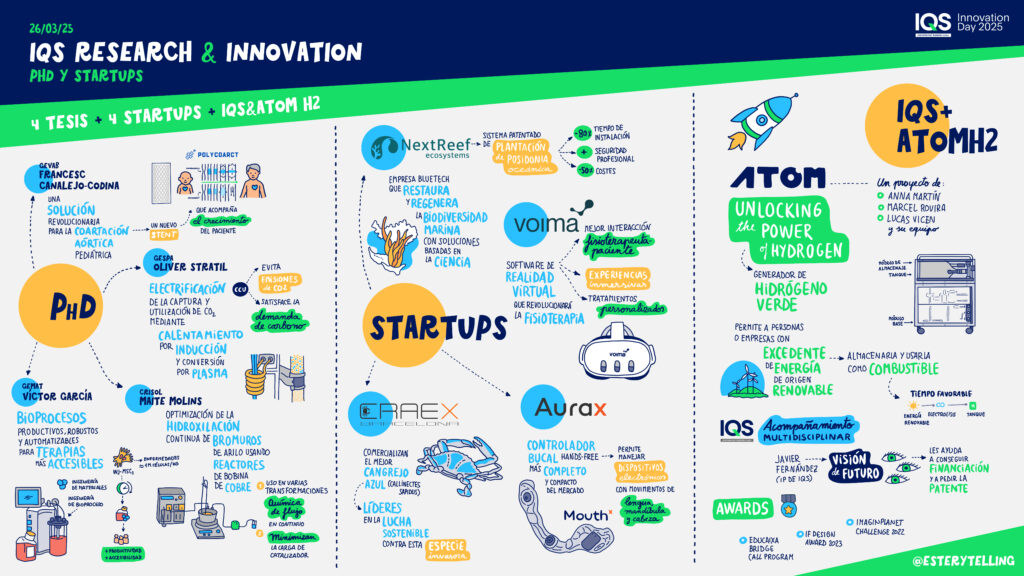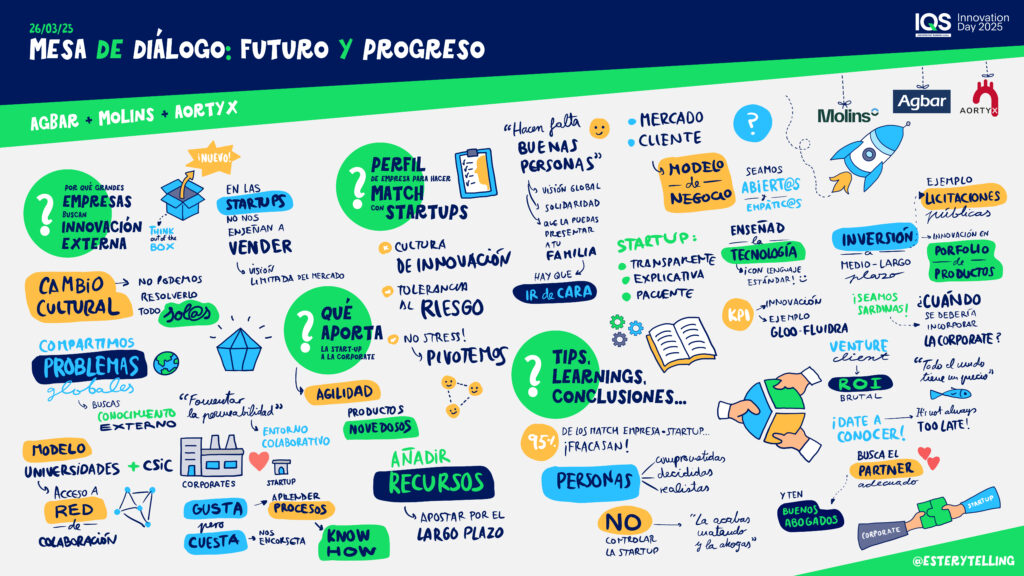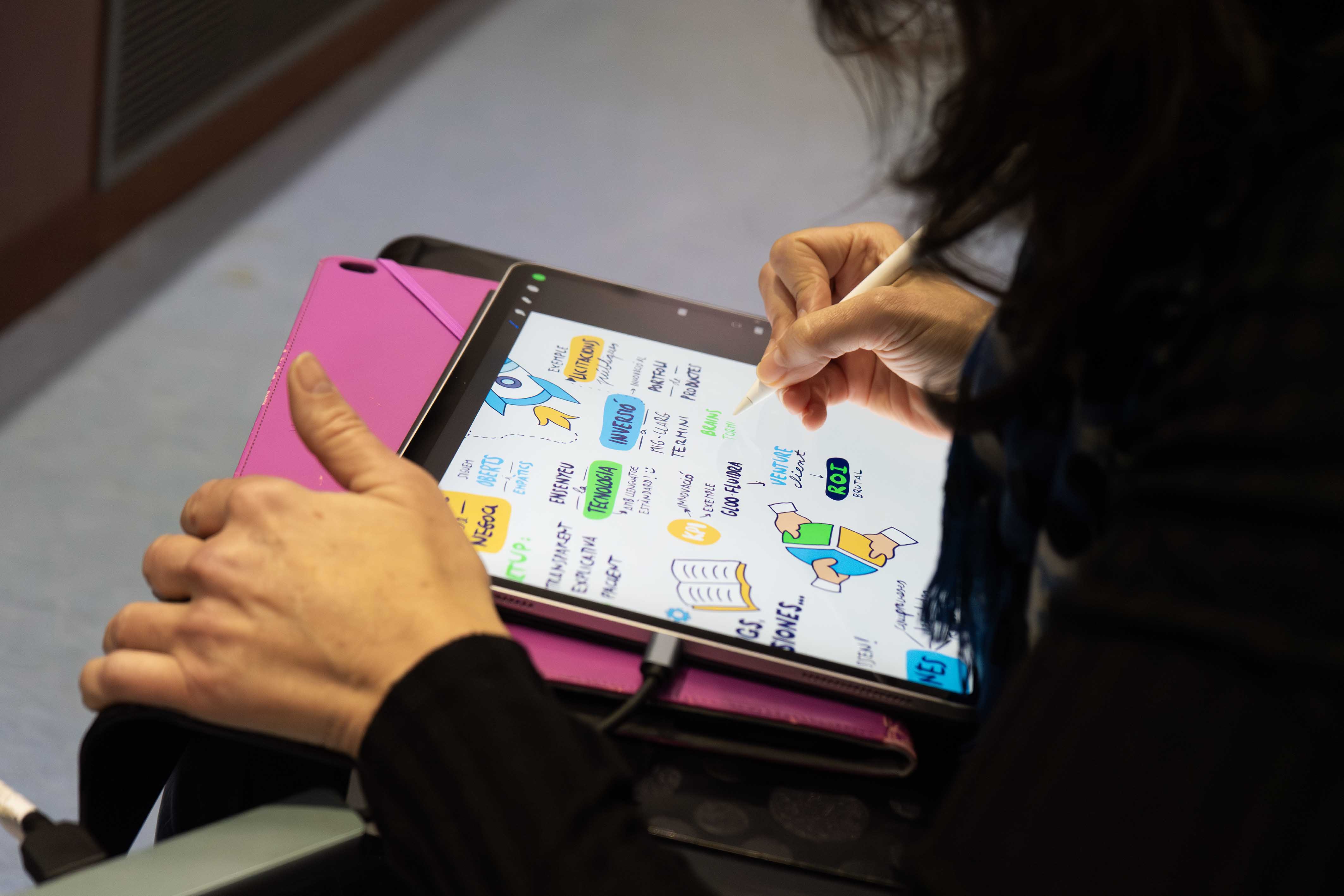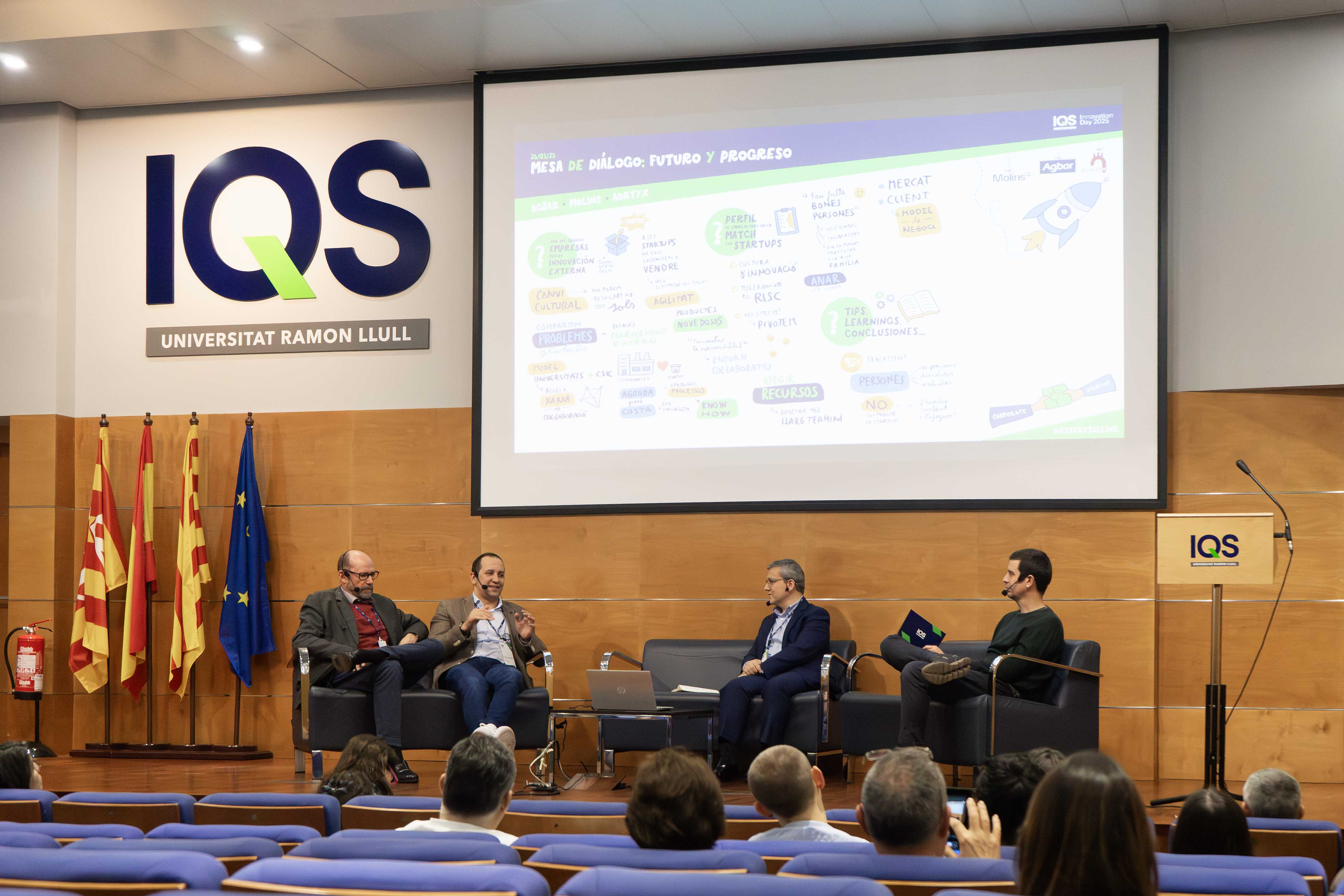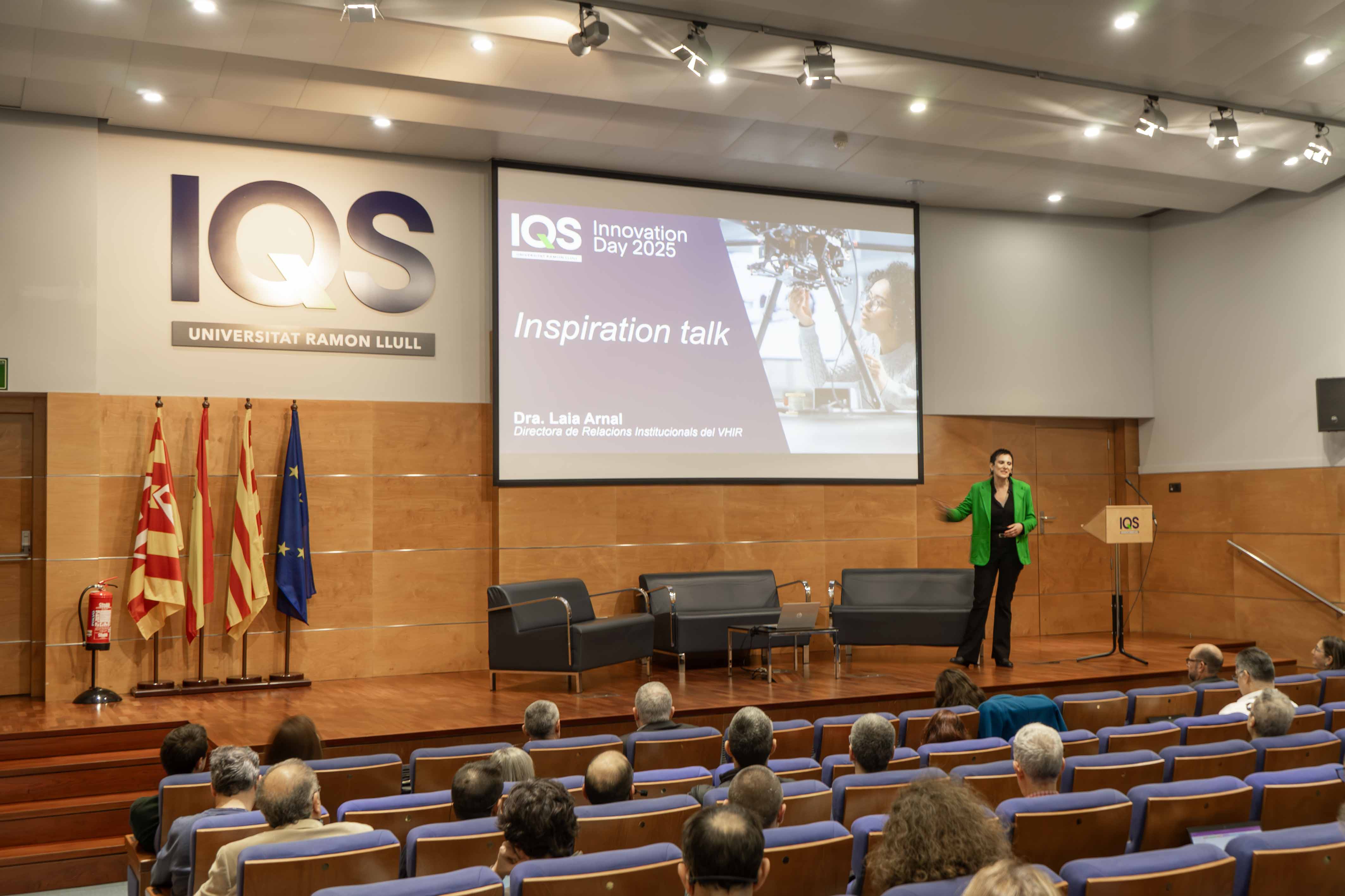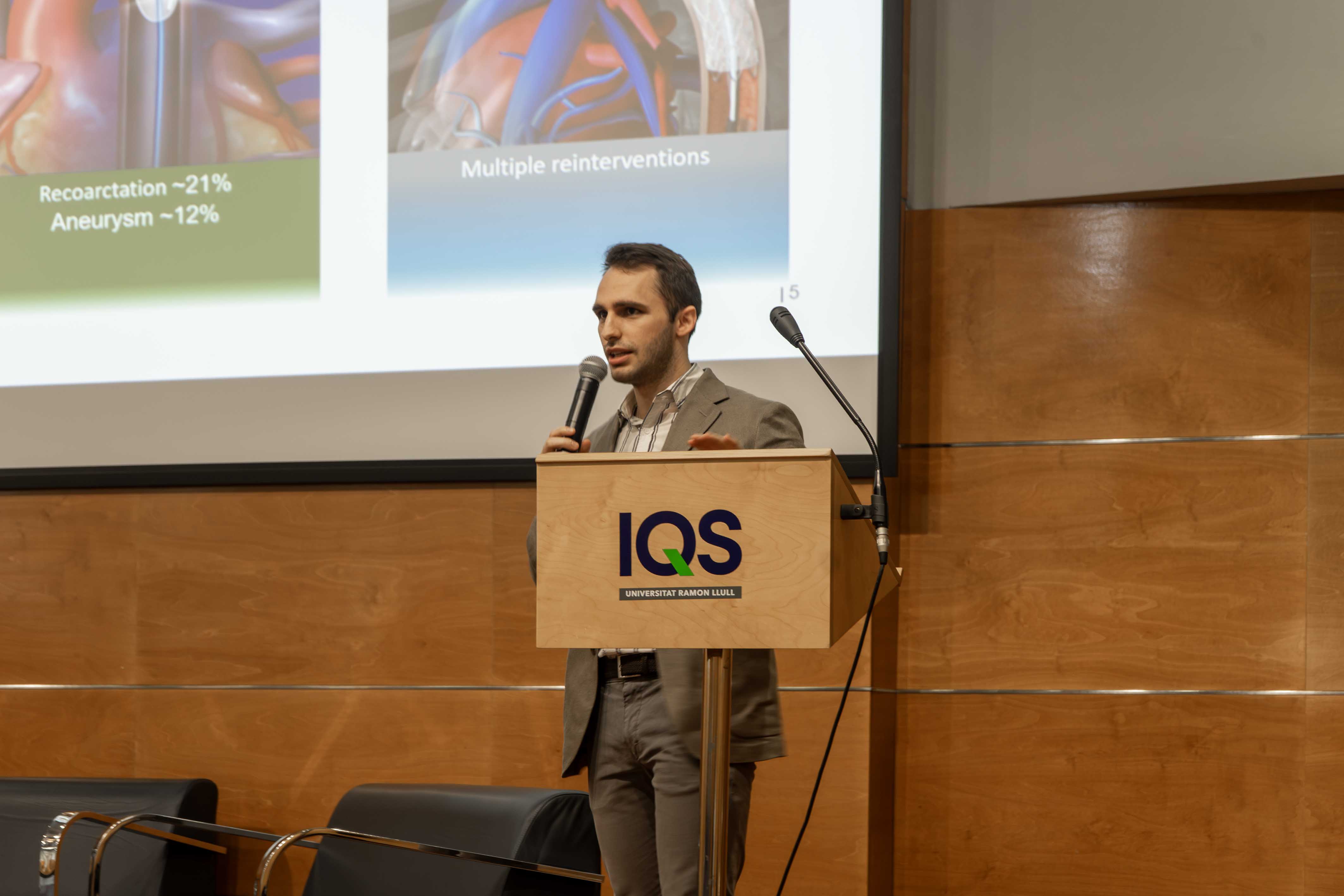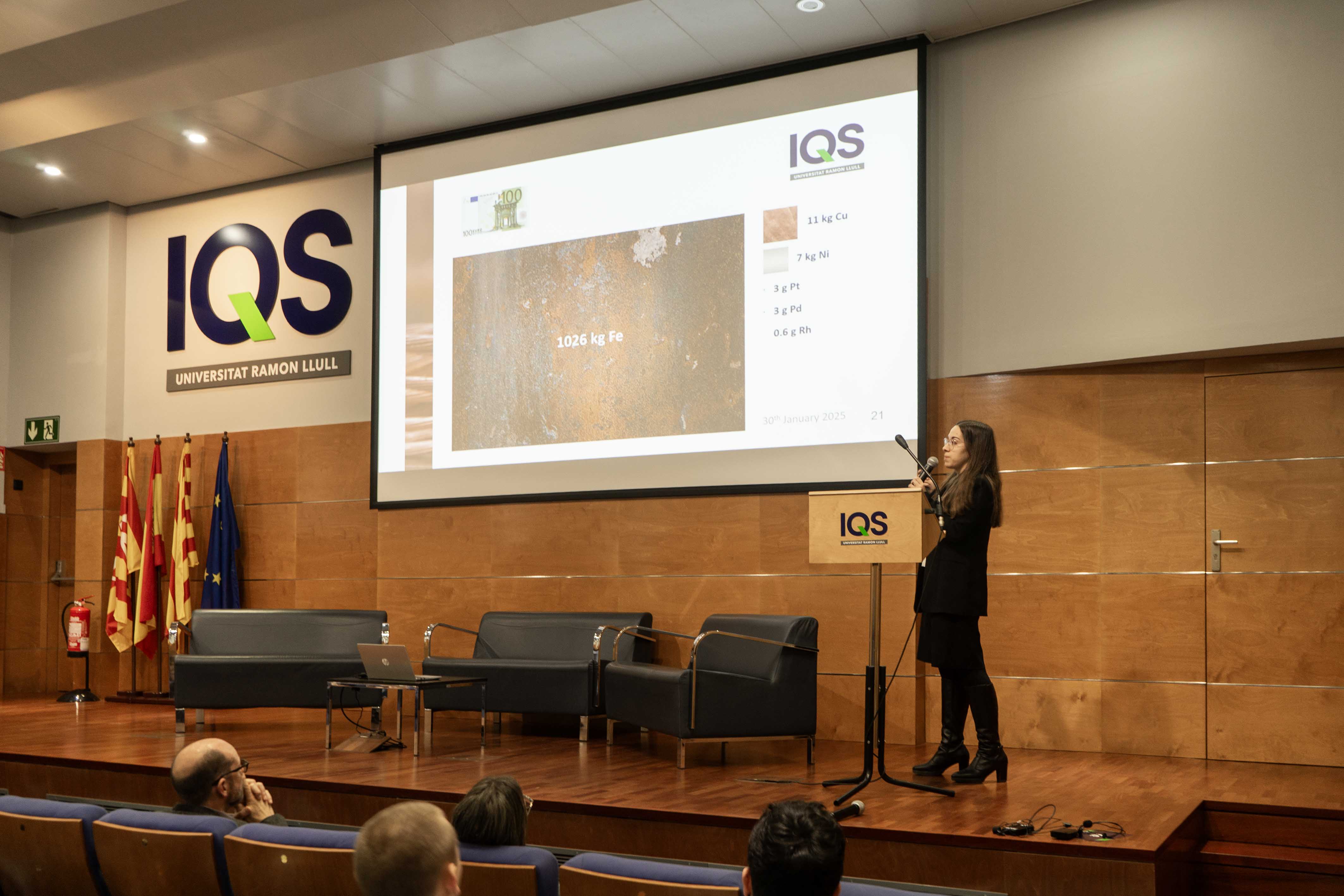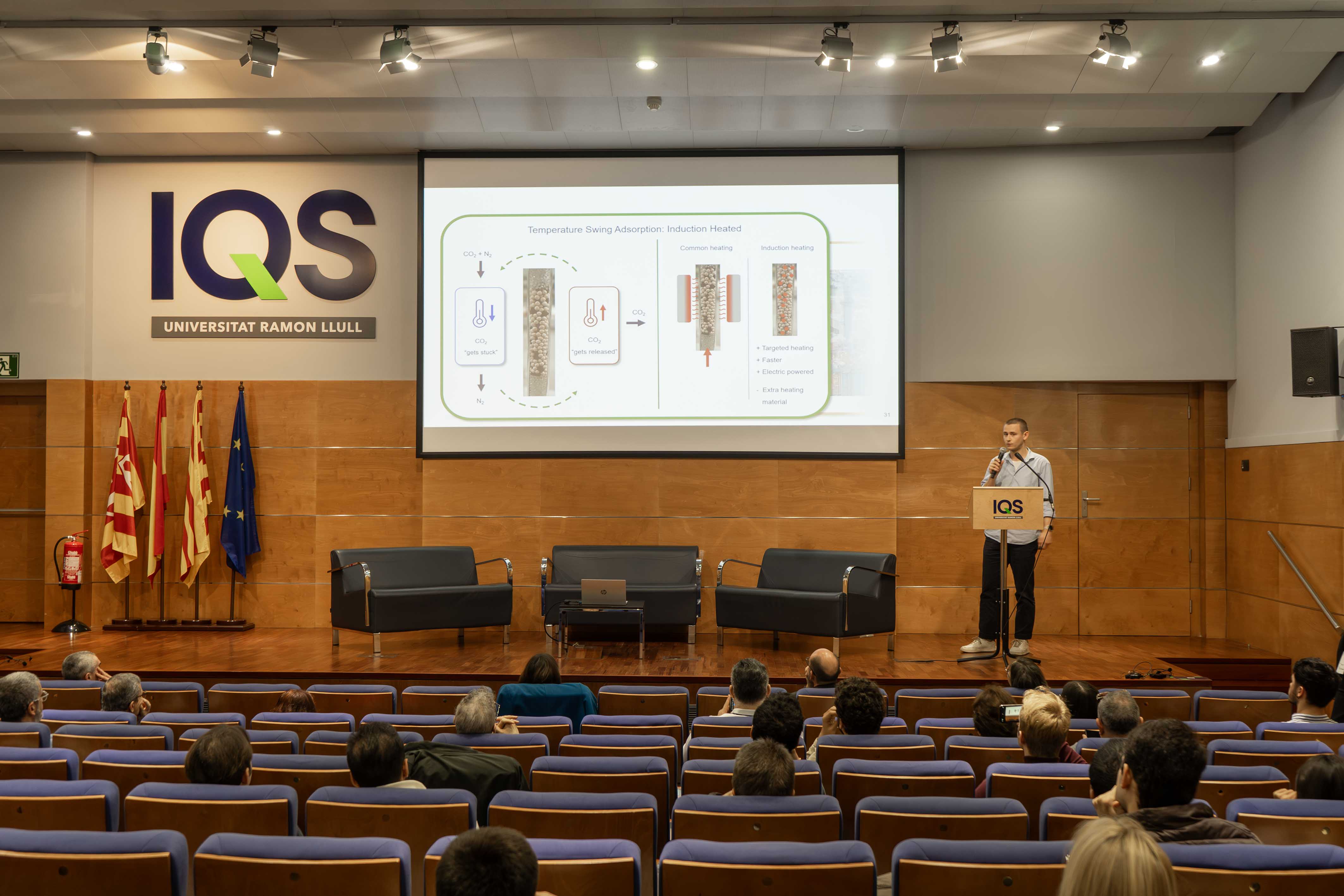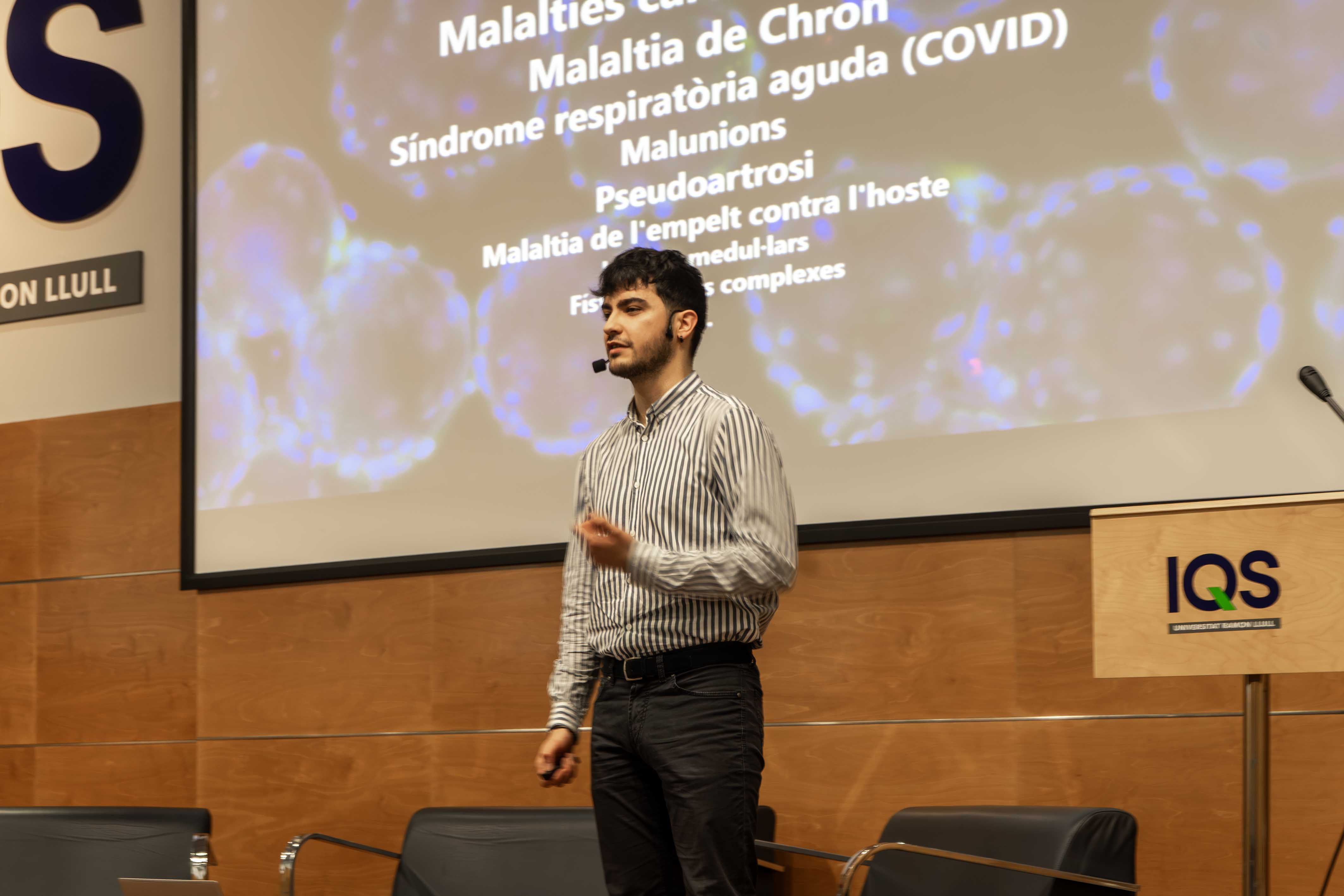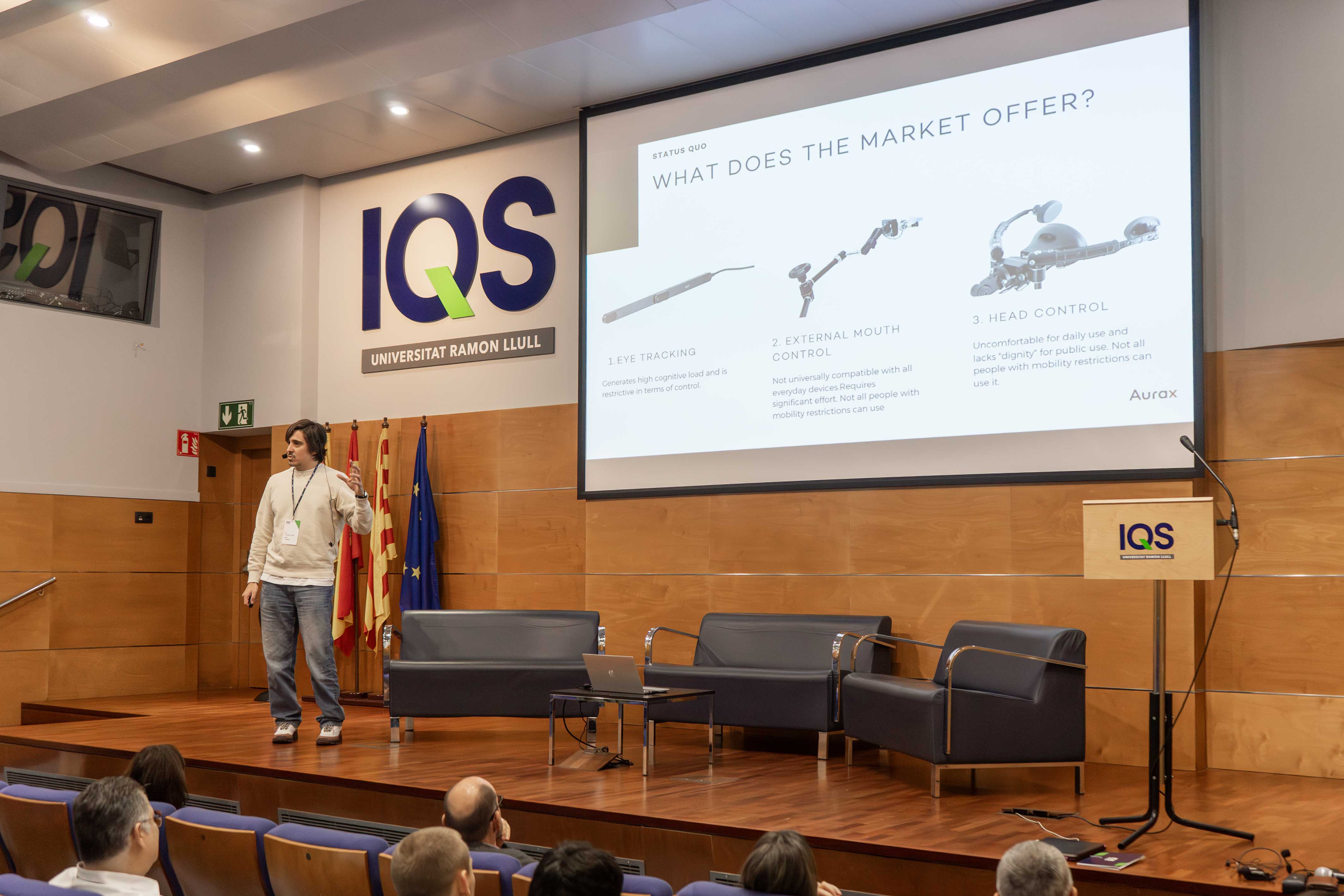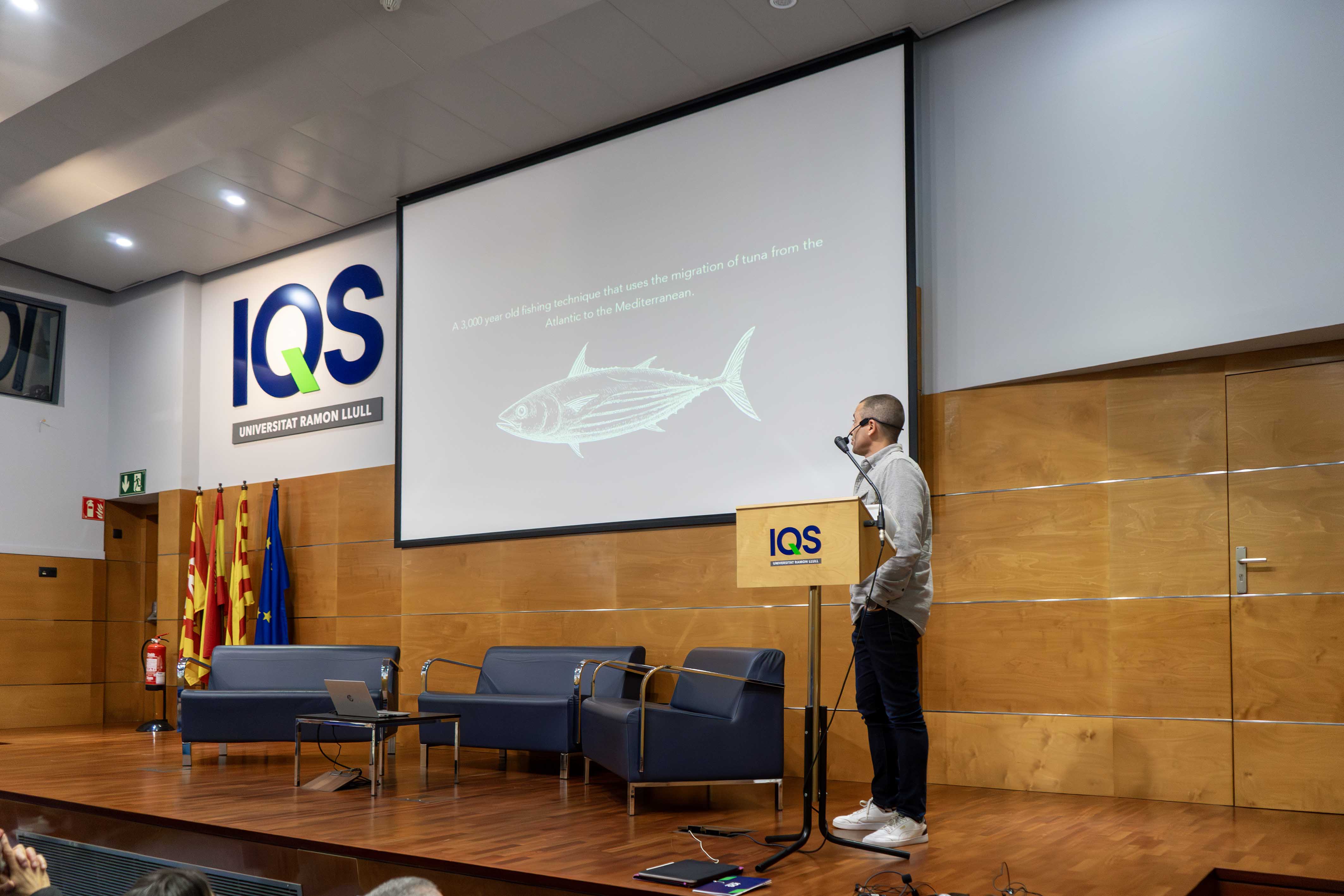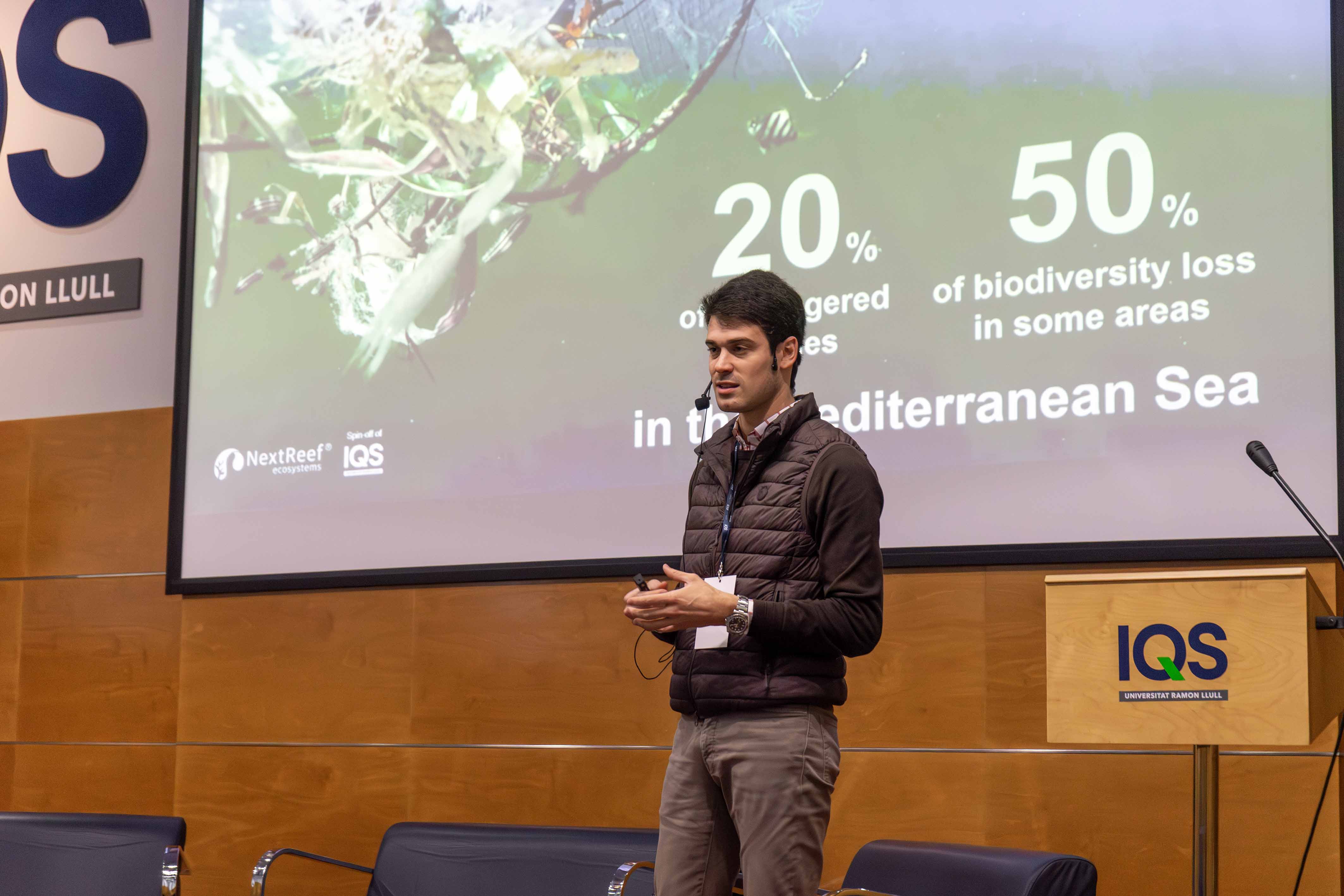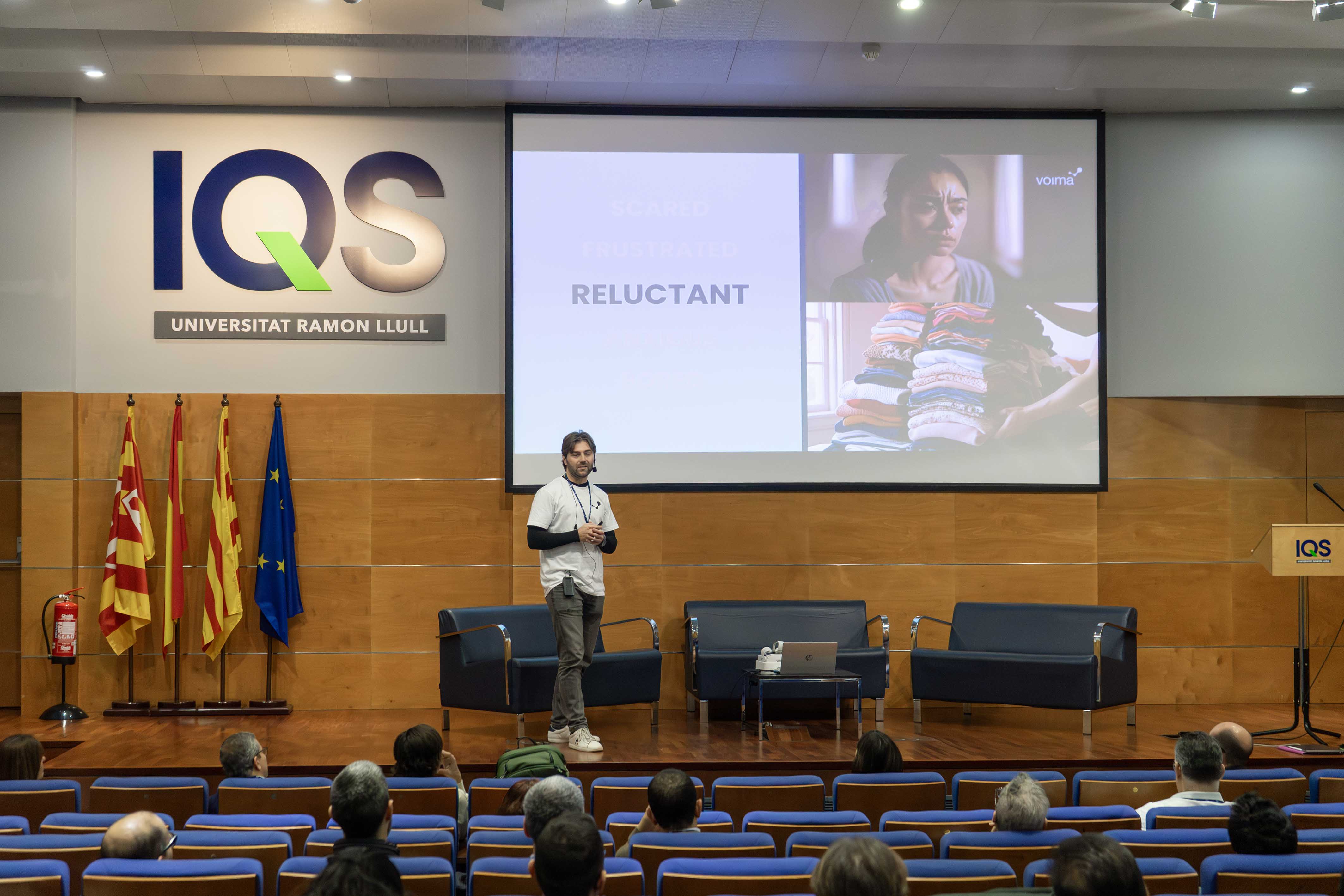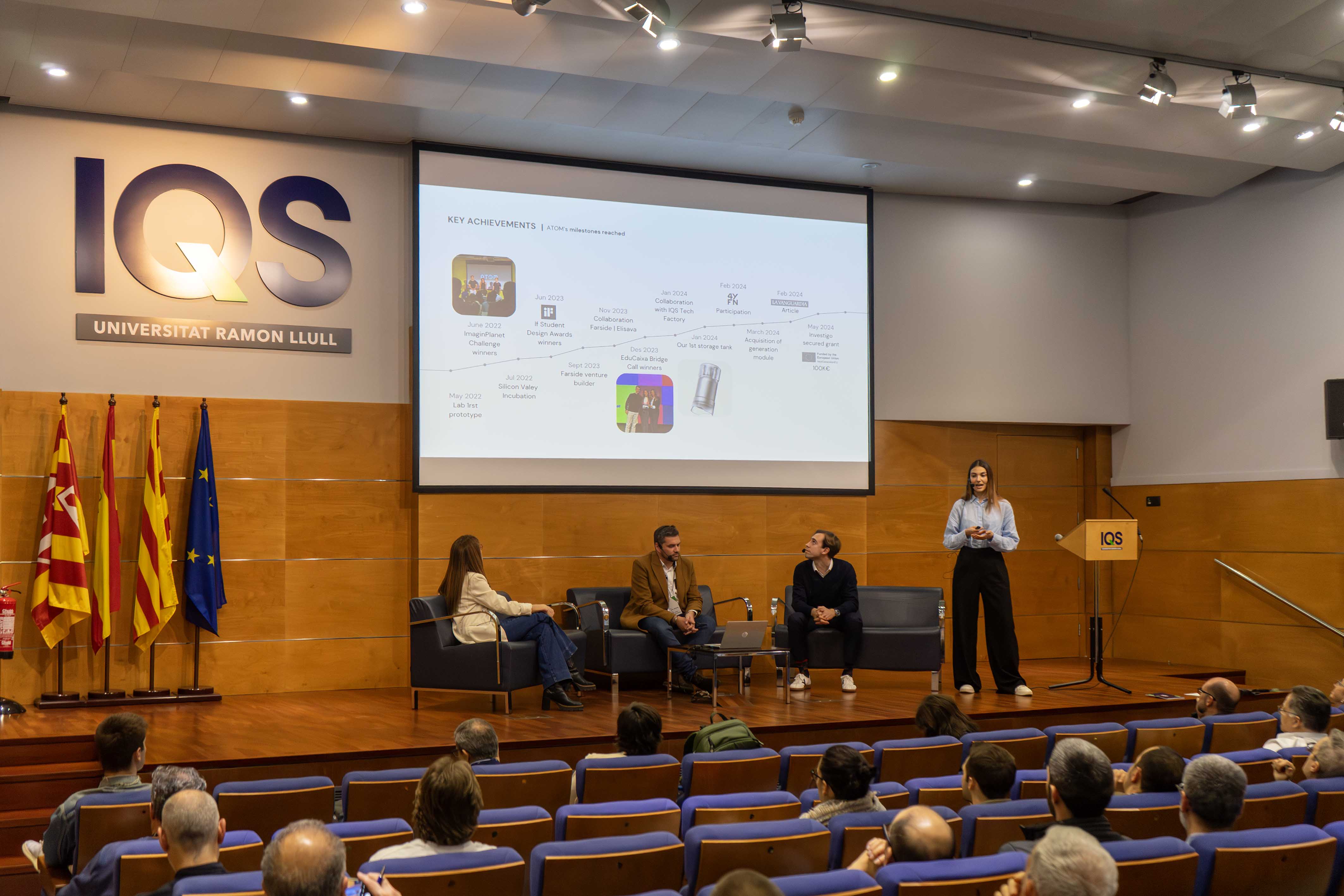Biomimetic structures to recover marine ecosystems, virtual reality glasses to improve success in physiotherapy treatments, culinary proposals to fight against the invasive blue crab species in the Mediterranean, an oral interface that facilitates the handling of technological devices for people with reduced hand mobility, and a hydrogen storage system for use as sustainable energy are just some of the innovative solutions that were unveiled at IQS Innovation Day 2025. This initiative sponsored by IQS brought together representatives from the business world, academic researchers, students, and startups with the aim of exploring the potential of innovation as a nexus that is capable of producing practical applications to improve society.
“We can’t consider basic research without innovation, and there’s no innovation without basic research,” said Dr Salvador Borrós, Director of IQS, in the speech he gave to open the conference. Attendees were able to confirm his statement during the presentation of the successful collaboration examples between the different research groups that operate under the umbrella of the university and companies in the IQS ecosystem such as AGBAR, Molins, and Fluidra.
Before delving deeper into the topic, Laia Arnal, Director of Institutional Relations at the Vall d’Hebron Research Institute (VHIR), gave an inspiring lecture about the value of innovation. “We innovate to find solutions that make an impact, generate wealth in society, and contribute to progress,” she said. And it is a shared responsibility, because “everyone must innovate. The fundamental material for innovation is talent. Therefore, it is necessary to create environments that encourage the development of talent, necessary investments, and recognizing that innovation implies taking chances.”
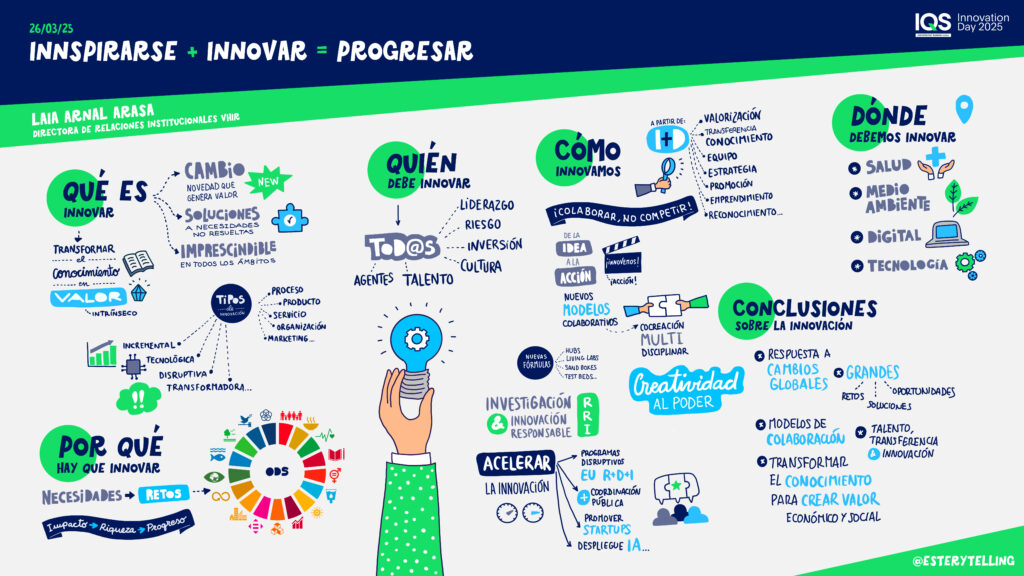
Innovative technical solution for AGBAR
AGBAR needed an innovative technical solution to work on refurbishing pipelines that could overcome the difficulty of a congested underground network of services and avoid incidents. “Working with IQS has provided us with essential technological support to make a substantial and safe leap, incorporating more sustainable refurbishment techniques that guarantee the upkeep of drinking water supply infrastructure,” said Dr Antoni Andreu, head of Projects and Work at AGBAR.
“We accepted the project even through it was not economically profitable because we knew it could have a social impact in the field of material resistance. AGBAR needed quick answers and we provided them through the research and experimentation techniques we have developed at the university. We are looking forward to applying our knowledge to provide practical solutions to real problems,” stated Dr Marco A. Pérez, professor and researcher with the GAM group at IQS. In addition, these types of projects are later studied in the classroom, producing an impact on greater student motivation.
An Idea Hackathon for Molins
Students played the lead role in the second success story presented at IQS Innovation Day 2025: collaborating with Molins, a company in the construction sector that, according to Manel Guillem, Head of Strategic Innovation and Business Development, “has a long way to go in managing ideas and that’s why we are opening up to partnering with emerging companies, universities, technology centres, and innovation hubs.”
Within this context, IQS proposed holding a Hackathon in 2023, the first by IQS Tech Factory, in which Javier de la Ossa, coordinator of the incubation programme, explained over the course of a weekend how four student groups worked on answering the question “What is missing from our product catalogue?” as posed by the company. As a result, proposals emerged in the field of waste management, modular building to enable the recovery of construction materials, and recruiting talent, all of which have driven Molins to delve deeper into the path of innovation.
Innovative adhesive solutions
The last case study was presented by Francisco Ripoll, director of GLOO, a startup that was founded through a research project developed at IQS to optimize the process of repairing the sails of boats that participated in the BCN World Race regatta. “The result was Dr. Sails, an adhesive manufactured at the university that enabled sailors to repair their boats in the middle of a round-the-world voyage.”
That experience was the seed for GLOO, which develops adhesive solutions for various applications, including the swimming pool sector. The involvement by IQS made it possible for the startup’s founders to contact Fluidra, the company that successfully markets them.
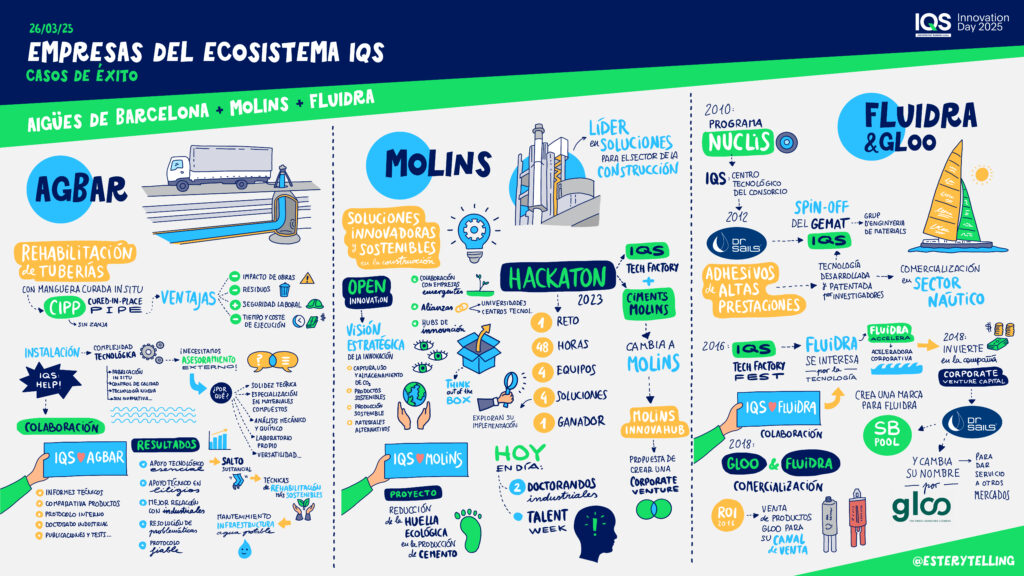
Innovative startups in health and environmental sustainability
Providing an adequate environment for the creation of startups is one of the main objectives of IQS Tech Factory in order “to make it easier for the ideas we generate at the university to reach society,” said Carles Malet, Associate Director of Strategy and Business. The sectors in which the institution works have diversified with respect to its origin focused on chemistry. At present “we’re making a significant commitment to research in the fields of health and environmental sustainability.” This has resulted in NextReef Ecosystems, Voima, Craex Barcelona, Aurax, and ATOM H2.
“We are working on research into biomaterials that promote the natural recovery of marine ecosystems,” said Albert Forés, CEO of NextReef Ecosystems. “Our customers not only prevent their activity from having a negative impact on the environment, but also contribute to conserving natural capital.”
Craex Barcelona also works to conserve the marine ecosystem by fighting an invasive species: the blue crab, which has come to the Mediterranean due to warming water. “It is the crab species with the third highest culinary value, so the solution we propose involves eating it,” said David Benet, co-founder of the startup. They sell it in various formats, especially in Asia and America, and are working on exploiting the animal’s exoskeleton to generate zero waste.
Founded through an IQS innovation programme, Voima operates in the field of health. Its founder, Ari Laiho, presented it as “a solution to avoid low adherence to physiotherapy treatments.” It is a virtual reality application that helps manage patient pain and negative emotions, along with allowing professionals to design personalized immersive environments.
Although it also originated due to a therapeutic need, the MouthX technology developed by Aurax is arousing the interest of all types of users. According to the company’s co-founder and IQS Alumnus, Víctor Julià, the device can be operated with the tongue. This enables it to be connected to any compatible electronic device as it was designed “to facilitate the use of technology for the more than one hundred million people in the world who cannot use their hands.” However, more than half of the individuals who have taken an interest in it “do not have any mobility issues.”
Finally, IQS Innovation Day delved into the ATOM H2 experience through two of its founders, Ana Martín and Lucas Vicén. It entails a hydrogen storage system for use as sustainable energy, which is undergoing pilot tests in real environments. The support from IQS Tech Factory and the research carried out within the framework of the university’s GESPA group allowed the project to find technical solutions regarding material efficiency and hydrogen absorption, as well as facilitating efforts to apply for public grants that have made the viability of the startup possible.
IQS Innovation Day 2025 came to a close with the presentation of the theses on which the doctoral students Francesc Canalejo, Maite Molins, Olivier Stratil, and Víctor García are working in the fields of medical research, environmental sustainability, and material efficiency. Finally, the event ended with a roundtable on how startups must manage relationships with large companies when presenting innovative projects. It was moderated by Jordi Arbusà, Igniter at IQS Tech Factory, and featured attendance by representatives from AGBAR, Molins, and the startup AORTYX.
